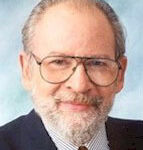James O’Keefe, the young man who exposed the corruption within ACORN, an organization whose voter registration program and others were closely allied with the Democratic Party, has written “Breakthrough: Our Guerrilla War to Expose Fraud and Save Democracy.”
“The beauty of video, especially amplified by the Internet, is to allow a handful of citizen journalists working on a shoestring to end-run the biggest news organizations in the world.”
Fresh out of college, O’Keefe formed Project Veritas to go after stories that were being ignored by the mainstream press. ACORN gained him national attention when he and a female colleague pretended to be a pimp and a prostitute looking to purchase a home where they could import underage girls for the sex trade. Their hidden camera and microphone recorded the way ACORN employees were unfazed by this and offered advice on how to do it.
O’Keefe was fortunate to secure the late Andrew Breitbart as his mentor and, through him, access to major media personalities and outlets such as Glenn Beck who at the time had a popular show on Fox News. Breitbart was pioneering Internet news gathering and reporting on his own popular website, one element of which was BigGovernment.com.
As PJTV commentator Bill Whittle would note in the wake of the ACORN expose and subsequent legislation that defunded it, “I think the enemy they were fighting against are the media. By not covering the story, not at all…Breitbart showed that the media is no longer merely biased. They’re no longer even ignoring the news. The mainstream media is now in the news suppression business.”
O’Keefe notes that “the New York Times suppresses more stuff, more consequentially, than any other media outlet in the world. Like the Post, the Times tried not to notice the ACORN furor. The newspaper ran its first staff-written article on the subject on September 15, five days after the airing of the initial video and three days after the Post had run its front-page story.” O’Keefe was not even contacted by a Times reporter until two days after its initial story.
The impact of what O’Keefe’s citizen journalism was having was not lost on journalists who make their living within the business. Then executive editor of The New York Times, Bill Keller, would write “Julian Assange (of WikiLeaks) aims to enlist the media; O’Keefe aims to discredit us. But each, in his own guerrilla way, has sown his share of public doubt about whether the press can be trusted as an impartial bearer of news.”
O’Keefe, however, says that “in truth we don’t have the wherewithal to discredit the media. We merely scoop them. They discredit themselves by refusing to cover stories with national implications that much of America already knows to be news.” The current examples of this are the 2012 Benghazi attack and the Obamacare debacle that continues to unfold with illegal delays, waivers, and its hideous implementation by an already tarnished Internal Revenue Service, involved in its own scandal.
As someone who joined the Society of Professional Journalists on April 1, 1979 and maintained membership ever since, I can attest that journalism over the thirty-five years or more that I have practiced it, has rarely been about being impartial. Indeed, it has gotten worse. Before and since, journalism has largely been an enterprise whose aim has been to advance liberal ideas, liberal legislative initiatives, and those espousing them.
The next time you’re reading the daily newspaper, listening to the radio, or watching television, what you’re not likely to receive is news that will do harm to the progressive agenda. You are receiving the liberal interpretation of what the news is and is not. Were it not for O’Keefe’s efforts you would not have known about ACORN, the deep biases within those running the National Public Radio programming, the attitudes uncovered in the New Jersey Teachers Union, and others.
The response to O’Keefe’s guerrilla journalism has been attacks by those in the news industry to discredit him while reporting on his exposes. He has also been subjected to a bevy a legal suits from those afflicted by the truths he reported. “Although I have been called a liar in a thousand different ways, I have not once been sued for libel or defamation. I have, however, sued others for libeling me. Of course, you would not know that from reading the New York Times.
“The beauty of video, especially as amplified by the Internet,” writes O’Keefe, “is to allow a handful of citizen journalists working on a shoestring to end-run the biggest news organizations in the world. When the American people saw our videos, they responded.”
In the aftermath of the ACORN story, O’Keefe reflected that, “There would be no Pulitzers waiting for us at the end of the day, no speaking engagements at prestigious J-schools. Instead we would face a continuing blizzard of legal challenges, a swarm of snippy media critics, and a tsunami of insider outrage at the slightest accusation of impropriety…It can be brutal along the way, but in the end there is something incredibly beautiful about shoving the facts down the throat of the mainstream media and watching them gag on the truth.”
If you are wondering why President Obama, despite questions about his eligibility to hold office, despite scandals growing like mushrooms, despite his outright lies about Obamacare and the Benghazi attack, continues to go largely unchallenged by the mainstream press, O’Keefe provides a pithy answer. “If today’s reporters found themselves in revolutionary France, they would be endorsing the head choppers, and their audience would cheer each head as it hit the basket.”





